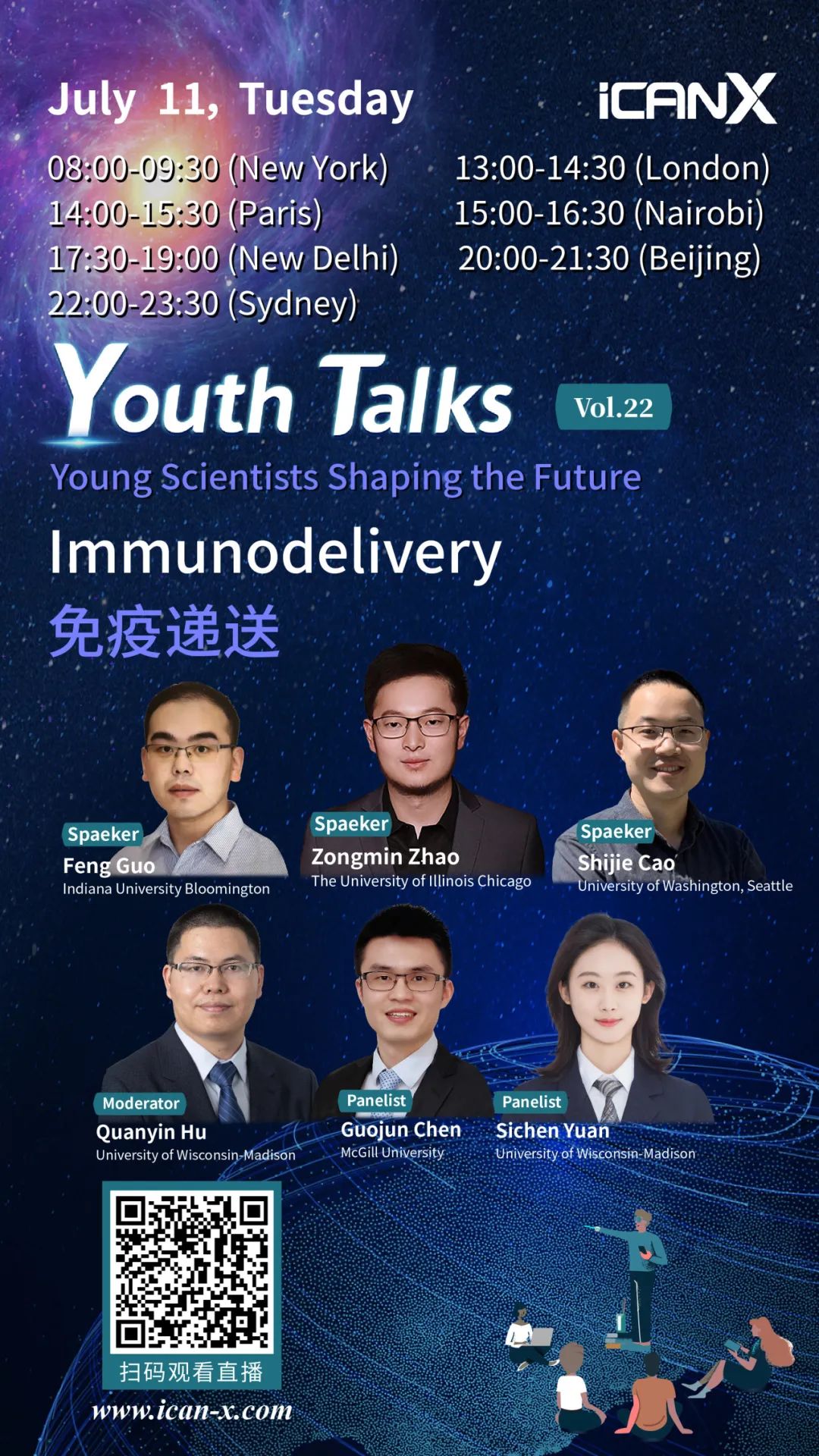Speaker: Shijie Cao, University of Washington
Time: 20:00-21:30 p.m., July 11, 2023, GMT+8
Venue: Scan the QR code to watch online
Abstract:
The gut microbiome plays a pivotal role in modulating the host's immune system. Therapeutics based on the microbiome are showing promise in the treatment of diseases associated with gut dysbiosis, including inflammatory, metabolic, allergic, and autoimmune conditions. However, selectively colonizing the gut with specific microorganisms remains a challenge. Microbial metabolites, such as short-chain fatty acids (SCFAs), exhibit immunomodulatory properties that can bypass the need for the microorganisms themselves. Although SCFAs are generally safe, their oral administration is hindered by their unpleasant odor and taste, as well as their rapid metabolism by host tissues and cells. In this talk, I will present several strategies that we have developed to overcome these limitations. First, we created a proof-of-concept polymeric micelle system capable of delivering butyrate, one of SCFAs, to the distal gut, thereby mimicking the therapeutic effects of protective bacteria naturally found in the intestines of healthy individuals. We demonstrated its efficacy in preserving gut barrier integrity and observed remarkable success in treating food allergies and colitis in mice. Next, we repurposed negatively charged micelles for lymphatic targeting and peripheral immune modulation, which resulted in localized immune suppression and demonstrated therapeutic efficacy in the context of rheumatoid arthritis. Lastly, we formulated a serine-conjugated butyrate prodrug (SerBut), which is based on the strategy of employing amino acid transporters to facilitate escape from the gut and enhance systemic absorption, thus increasing bioavailability. SerBut exhibited superior efficacy in treating both rheumatoid arthritis and multiple sclerosis in mouse models, accompanied by potent systemic immunomodulatory effects. Our work employing novel prodrug strategies to harness microbial metabolites and unlock their therapeutic potential could revolutionize the delivery of microbiome-based therapies, opening new avenues for treatment strategies in allergic, inflammatory, and autoimmune diseases.
Biography:
Shijie Cao is an Assistant Professor in the Department of Pharmaceutics at the School of Pharmacy, University of Washington, USA. He earned his Ph.D. degree in Bioengineering from the University of Washington in 2018, and his Bachelor’s degree in Pharmacy from Fudan University in 2013. From 2019 to 2023, he served as a postdoctoral scholar in the School of Molecular Engineering at the University of Chicago. He has authored over 30 papers, including publications in esteemed journals such as Nature Biomedical Engineering, Science Advances, The Journal of Clinical Investigation, Biomaterials, ACS Central Science, and Nanomedicine. His research group is currently focusing on pharmaceutical and immunoengineering approaches to control dysregulated immune responses and to develop translatable tools for the prevention and treatment of infectious diseases as well as immunological disorders, including allergies, autoimmune diseases, and inflammation. He has been honored with the PMSE Future Faculty Award by the American Chemical Society and has received numerous travel awards from organizations including the National Multiple Sclerosis Society, the American Association of Immunologists, and the American Association of Pharmaceutical Science. Furthermore, Dr. Cao is actively involved in translating technologies into clinical applications and has achieved recognition through awards such as 2nd place and the Moonshot Award in the Edward L. Kaplan, ’71, New Venture Challenge. Part of his work is also being advanced towards clinical translation through a start-up company, ClostraBio, Inc.
Source: iCANX
